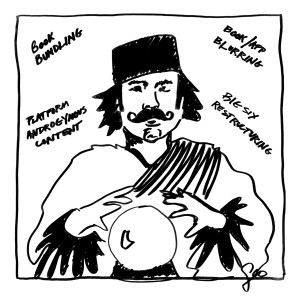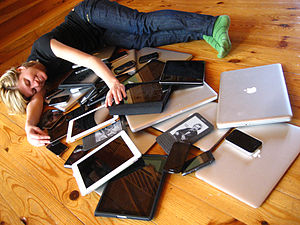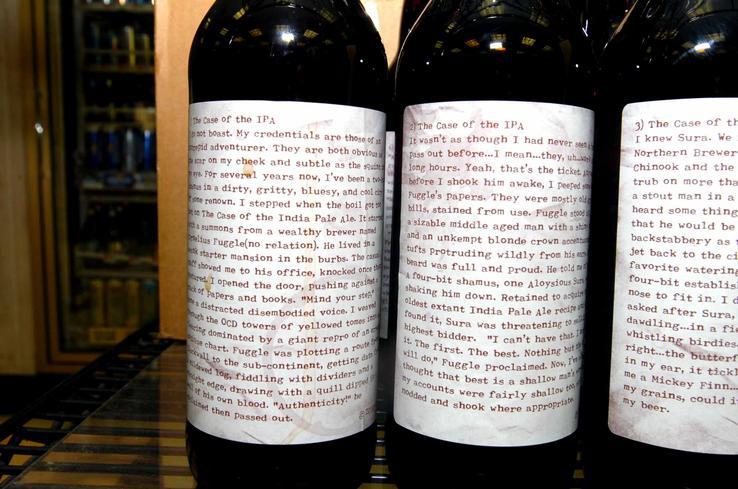Hybrid Author: Self-Publishing Circa 2025
The term “self-publishing” may have outlived its usefulness, according to Jon Fine, director of author and publishing relations at Amazon… When asked at a recent past conference what “self-publishing” looked like in ten years, Fine… said that it probably won’t be called that anymore. In the future, authors will publish in a number of ways.”If you’re an author in ten years, you’re going to have an array of options… [it will be] possible to take a story and make it available to hundreds of millions of people around the world… and do it in multiple formats.” (Digital Book World)

2012 Publishing Predictions Revisited (doodle by virtualDavis)
Seems like more and more authors, editors, agents, publishers and retailers are adopting Amazon’s vision for the future of self-publishing as a hybrid author model. Makes so much sense. Has for several years. But it’s an uncomfortable change for big biz and entrenched authors, editors, agents, publishers and retailers. Necessity is the mother of invention. They’ll come around.
Hybrid authors and hybrid publishing platforms will be the norm, I expect. Fine foretells the end of the “self-publishing” term. I suspect the same will come for “publishing”. As storytellers of all stripes adapt to the exciting new possibilities for sharing their message, the limitations of conventional publishing loom ominous. Books are jolly, and I’ll hang on to mine so long as the moths let me. But books are only one limited, expensive, inefficient, environmentally clunky, distribution-clunky, production-clunky package for stories. I foresee platform-androgynous storytelling with more and more weight shifting to digital audio.
And the most endorphin-pumping aspect of this shift? I foresee authors and other content creators breaking free of “book think” and beginning to explore—I mean really explore—the potential of sharing a story in across diverse media. Instead of simply repackaging the same story identically in print, digital, audio, etc. (in one lump or serialized fashion), each version can be unique, developed/expanded/enhanced/etc. according to the benefits of each medium.
It. Will. Happen.
And, just like bundling, there are easy ways and reasons to dismiss the Oracle of Essex. But mark my words! ;-) Necessity may be the mother of invention, but possibility is the father of invention. Dream, experiment, explore, storytellers. And I suspect you too will grasp the wide open future. Hybrid authors will reinvent storytelling. Again. And again.
Related articles
- Self-Publishing Has a New Buzzword: Hybrid Author (goodereader.com)
- Radiolab: The Art and Science of Digital Shamanism (bigthink.com)
- Paper Lantern Lit and the Rise of the Hybrid Agent (goodereader.com)
- How Do Literary Agents Fit Into The New Book Publishing Ecosystem? (forbes.com)
- New ‘Hybrid’ Literary Agency, Foreward Literary, to Aim for Both Traditional and Self-Publishing (digitalbookworld.com)












